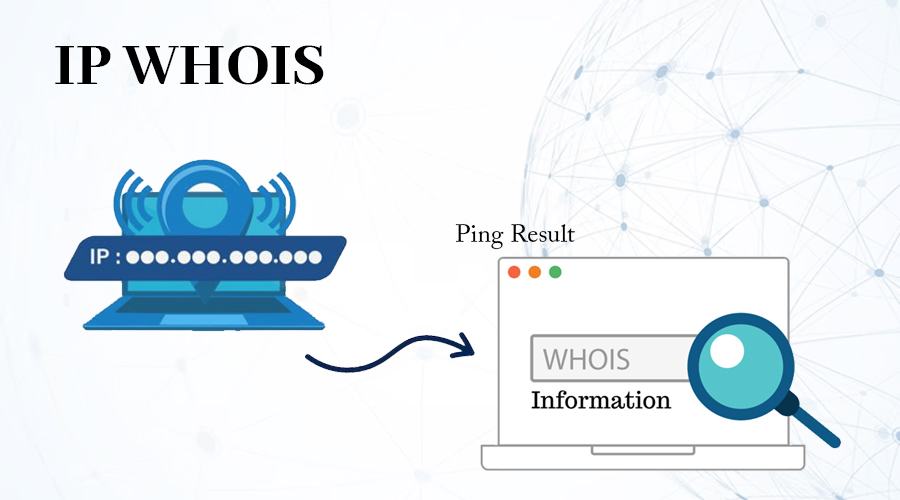What is an IP WHOIS
IP WHOIS Lookup Tool offers a free WHOIS Service to check who owns an IP address. Just enter an IP and perform the IP WHOIS Lookup to find which organization or individual owns that specific IP address.

IP WHOIS Lookup Tool
Go for IP WHOIS Lookup using WHOIS protocol for any allocated IP address.
The IP WHOIS information contains
- The contact information of the IP address owner.
- The Regional Internet Registry (RIR); which assigns that IP address.
- The autonomous system (AS) numbers.
- The designated owner, location, contact information, and abuse reporting details.
- The number of IP addresses in the block or blocks assigned to the owner of the IP you are researching.
What is IP address ownership?
Someone somewhere owns an IP address that is in use on the internet. An Internet Assigned Numbers Authority (IANA) is responsible worldwide for managing the allocation of IP addresses. The organization is responsible for reporting the information, for example, IP address, root zone management in DNS, ASNs allocation, and other Internet numbers and Internet Protocol-related symbols.
The Internet Assigned Numbers Authority further assigns Internet number resources (IP addresses and AS numbers) to regional internet registries (RIRs). These registries are responsible for allocating and registering Internet number resources within a specific region of the globe.
Each RIR has its regional rules and policies and follows those to assign the IP addresses and AS numbers to their customers, including ISPs and end-user organizations.
Every IP address that floats on the global public internet is administrated by one of the five RIRs, each working within a specific region of the globe. The RIRs and their regulatory areas are as follows.
- African Network Information Centre (AfriNIC) Manages IP addresses for the African continent.
- American Registry for Internet Numbers (ARIN) Manages IP addresses for the United States, Canada, and many Caribbean and North Atlantic islands.
- Asia-Pacific Network Information Centre (APNIC) Manages IP addresses for Asia, Australia, and surrounding Countries.
- Latin America and Caribbean Network Information Centre (LACNIC) Manages IP addresses for Latin America and the Caribbean.
- Réseaux IP Européens Network Coordination Centre (RIPE NCC) Manages IP addresses for Europe, the Middle East, and the former USSR.
Note: Suppose an RIR assigns a block of IP addresses to one of its ISP in the United States. The same ISP further assigns a sub-block of those IP addresses to one of their customer in Canada. The IP address's location still is reported as being in the United States.
However, for more accurate geolocation data and to get IP's location from several geolocation databases, you may use the IP Lookup tool.
How to find the WHOIS information of the given IP address by using the IP WHOIS Lookup tool?
To find the WHOIS information of a particular IP address. Perform the following steps.
- Open the IP WHOIS Lookup tool.
- Enter a valid IPv4 or IPv6 in the "Enter any Valid IP Address" section.
- After entering the IP address, click on the "Lookup IP" button.
- The tool performs the IP WHOIS lookup and provides you with the WHOIS info of that particular IP address.
IP WHOIS Results
You will get the information you should contact to reach out to the IP address owner from the IP WHOIS results. You will most likely get the Internet Service Provider (ISP) information to whom the IP address is assigned. If someone tries to spam or hack you, etc., it's best to dig out the abuse information included in the results. Otherwise, using the non-abuse contact information will be your best option when attempting to reach the controlling party.
Can I see the WHOIS details of the end user?
The WHOIS results provide the organization or individual's name against which the IP is registered in the IP WHOIS Database. Frequently it's an internet service provider (ISP). However, it's impossible to get the end-user information to whom the ISP assigns the IP. Only ISP has the original and exact details of its end user. You can get it if the court directs the ISP to provide the end-users name, address, and contact information.
